Panel Session
"Security Constrained or Stability Constrained (SC²) Optimal Operation for Power Systems with High Integration of Renewable Energies"
The growing integration of renewable energy sources, such as wind and solar, into power systems presents significant operational challenges due to their inherent variability and uncertainty. The Security Constrained or Stability Constrained (SC²) Optimal Operation framework addresses these challenges by optimizing the power system’s operation while considering security or stability constraints. Security constraints focus on ensuring the system can withstand contingencies like line failures or generator outages, while stability constraints ensure the system’s dynamic behavior remains stable under various disturbances or failures, such as sudden fluctuations in renewable generation. This framework is critical for maintaining the reliability, resilience, and efficiency of power systems in an era of increasing renewable energy penetration. By incorporating advanced optimization techniques and real-time stability assessments, the SC² approach facilitates the seamless and secure integration of renewables, contributing to the decarbonization of the energy sector while ensuring system stability and operational security.
Submission Method
Please submit your paper via https://www.zmeeting.org/submission/pset2026. Please make sure you've registered an account first.
Organizer
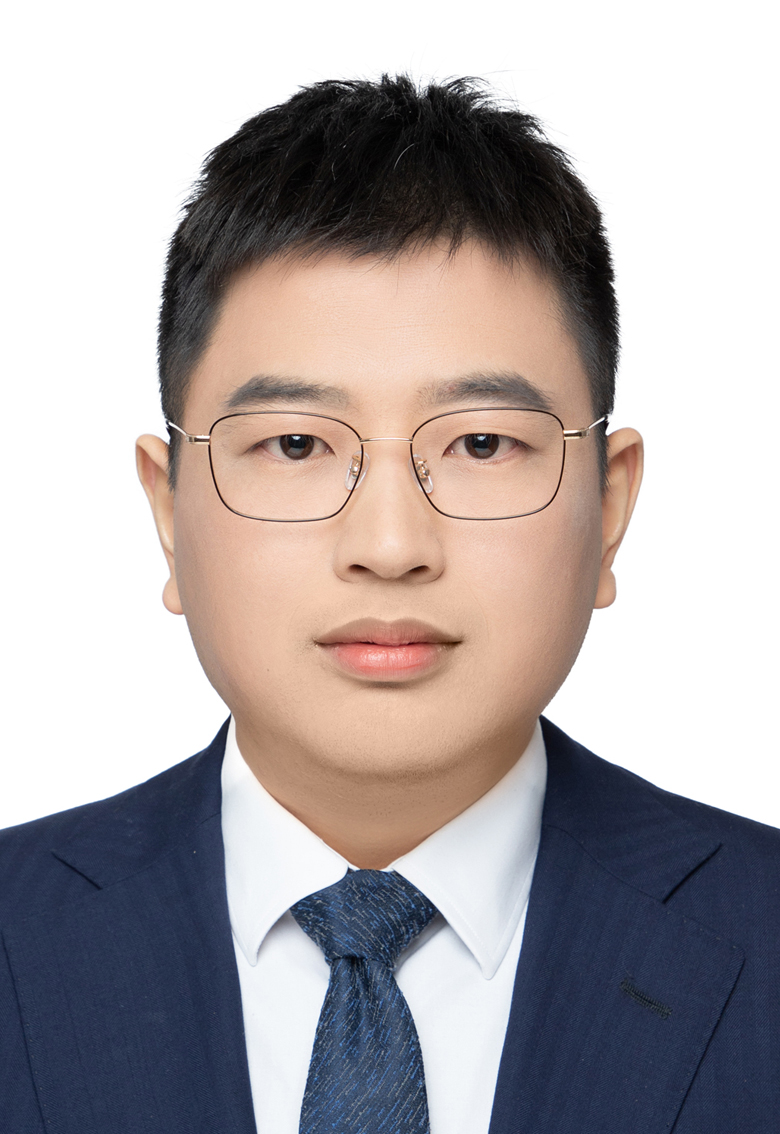 |
Xu Wang is an Associate Professor and Ph.D. Supervisor in the School of Electrical Engineering at Shanghai Jiao Tong University. He received his Bachelor degree from Southeast University, his Ph.D. degree from Shanghai Jiao Tong University, and completed his postdoctoral research at Illinois Institute of Technology. His research focuses on power system optimization, resilience enhancement, and distributed energy management. He is a Senior Member of IEEE, CSEE, and CES. He has led three national-level and three provincial-level research projects, and received the First Prize of the 2024 CSEE Science and Technology Progress Award. He has published over 70 papers, and holds 6 Chinese patents, 1 U.S. patent, and 4 software copyrights. His work has received 6 best paper and high-impact paper awards from top journals and academic conferences. |
Speakers
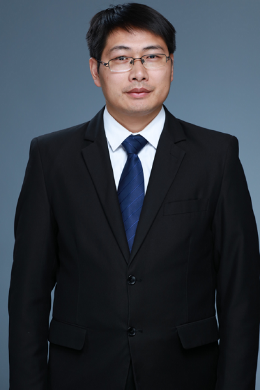 |
Leijiao Ge, Tianjin University, China BIO:Leijiao Ge is an Associate Professor and Master’s/Associate Doctoral Supervisor. His research focuses on intelligent distribution network situational awareness, optimal control of renewable energy integration, AI-empowered microgrid/distribution network technologies, and smart electricity data cloud computing. He is an IEEE Senior Member and serves on several national and professional committees, including the SAC/TC564 Standardization Committee for Microgrids and Distributed Generation, the Renewable Energy Grid Integration Committee of the Chinese Renewable Energy Society, and simulation and safety expert groups of the Chinese Society for Simulation and other national associations. He has led 44 national and industrial projects, including the National Key R&D Program for Young Scientists, NSFC General and Youth Projects, and defense and NDRC-funded research. He has published over 150 academic papers, including more than 50 as first/corresponding author in top SCI journals such as IEEE Transactions on Power Systems, IEEE Transactions on Sustainable Energy, IEEE Transactions on Sustainable Computing, IEEE Transactions on Instrumentation and Measurement, and ACS Nano. He has co-authored 5 books/book chapters in both English and Chinese, contributed to 6 national and international standards, and holds 30 granted invention patents. His work has earned 24 provincial and ministerial-level awards, including the First Prize of the China Energy Research Society Innovation Award and Second Prizes of Science and Technology Progress Awards in Tianjin and China’s Power Construction sector. He also serves as an editorial board member of Power Capacitor and Reactive Power Compensation and a youth editorial board member of the Journal of System Simulation. |
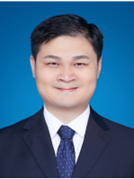 |
Xing He, Shanghai Jiao Tong University, China BIO:Xing He is currently an Associate Professor at the School of Electrical Engineering, Shanghai Jiao Tong University. He received his Ph.D. in Electrical Engineering from Shanghai Jiao Tong University in 2017, his M.Sc. from the same university in 2012, and his B.Sc. from Nanjing University of Posts and Telecommunications in 2008. His research interests include power system data analytics, intelligent perception of power systems, and anomaly detection in cyber-physical power systems. He has led or participated in over 10 national-level research projects, including projects supported by the National Natural Science Foundation of China, the National Key R&D Program, and the National Development and Reform Commission. He has published over 100 academic papers, including more than 50 in high-impact SCI journals such as IEEE Transactions on Power Systems, IEEE Transactions on Sustainable Energy, and IEEE Transactions on Smart Grid. His representative paper, “A Big Data Architecture Design for Smart Grids Based on Random Matrix Theory,” was selected as an ESI Highly Cited Paper and is listed among the Top 5 most-cited papers in IEEE Transactions on Smart Grid. He holds over 20 invention patents and has co-authored multiple monographs in both Chinese and English. He serves as a Senior Member of IEEE, a member of CSEE and the Youth Working Committee of the Chinese Society for Electrical Engineering, and has contributed to standardization efforts in power system cybersecurity and big data applications. |
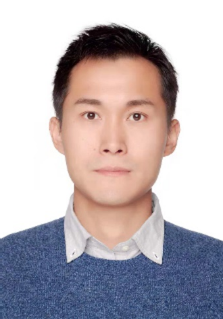 |
Ran Li, Shanghai Jiao Tong University, China BIO: Ran Li is currently an Associate Professor at the School of Electrical Engineering, Shanghai Jiao Tong University. He received his Ph.D. in Electrical Engineering and Statistics under a joint training program from the University of Bath in 2015, his second B.Eng. degree from Huazhong University of Science and Technology and the University of Bath (2+2 program) in 2011, and his first B.Eng. degree from North China Electric Power University in 2011. His research interests include power system big data analytics, electricity markets, and integrated “power-energy-transportation” systems. He has published multiple high-impact papers in leading journals such as IEEE Transactions on Smart Grid, IEEE Transactions on Power Systems, and Applied Energy. His work on deep learning for load forecasting and clustering algorithms for smart meter data has been widely cited, including one ESI Highly Cited Paper. Dr. Li has served as the principal investigator or co-investigator for several international and national research projects, including projects funded by the UK Engineering and Physical Sciences Research Council (EPSRC), the National Natural Science Foundation of China, the EU Horizon 2020 Program, and the UK-British Council. His leadership includes projects on peer-to-peer energy trading, robust EV network planning, and load forecasting exchange between the UK and China. |
 |
Kangping Li, Shanghai Jiao Tong University, China BIO: Kangping Li is currently an Associate Professor and Ph.D. Supervisor at the College of Smart Energy, Shanghai Jiao Tong University. He received his Ph.D. and B.Eng. degrees in Electrical Engineering from North China Electric Power University in 2020 and 2015, respectively. From 2020-2022, he was a postdoctoral researcher in Tsinghua University. His research interests include virtual power plant, electricity market and AI for energy systems. He has published more than 100 academic papers, including IEEE Transactions on Smart Grid/Power Systems, Applied Energy. Dr. Li currently serves as an associate editor or editorial board member for multiple SCI-indexed journals, including IEEE Transactions on Industry Applications and Protection and Control of Modern Power Systems. He also serves as a secretary in CIGRE C1.47 working group and IEEE PES China’s committees. From 2022 to 2024, he was ranked among the “World’s Top 2% Most-cited Scientists” by Standford university. |
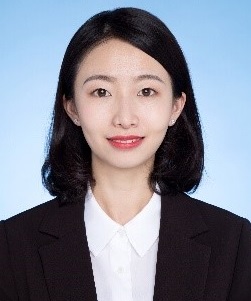 |
Chunyi Huang, Shanghai Jiao Tong University, China BIO: Chunyi Huang is currently an Assistant Professor in Electrical Engineering at Shanghai Jiao Tong University. She received her Ph.D. in Electrical Engineering from Shanghai Jiao Tong University in 2021, and her B.Eng. degree from North China Electric Power University in 2015. From 2019 to 2020, she was a visiting scholar at the Lyle School of Engineering, Southern Methodist University, working with Prof. Jianhui Wang’s group. Her research interests include planning and optimization of distribution systems, electricity markets, shared energy storage, and electric vehicles. She has participated in several national key research and development programs, National Natural Science Foundation projects, and State Grid research initiatives, focusing on flexibility optimization and coordinated operation of integrated electricity–transportation systems. Dr. Huang has published extensively in journals such as IEEE Transactions on Smart Grid, IEEE Transactions on Power Systems, and Applied Energy. She has been recognized with multiple awards, including the Best Presenter Award from IEEE OAJPE (2022), Best Paper at IEEE PES GM (2019), and the Shanghai Jiao Tong University Yang Jia Scholarship (2019). She also serves as a Youth Assistant Editor for Protection and Control of Modern Power Systems and has reviewed for major international journals and conferences such as IEEE Transactions on Smart Grid, IEEE Transactions on Power Systems, and IET Generation, Transmission and Distribution. |
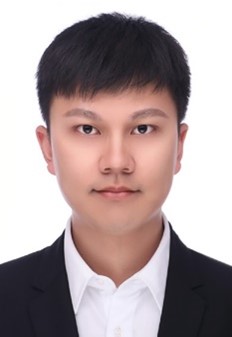 |
Shuai Fan, Shanghai Jiao Tong University, China BIO: Shuai Fan is an Associate Professor in the School of Electrical Engineering at Shanghai Jiao Tong University. He received his Bachelor degree from Southwest Jiao Tong University, his Ph.D. degree from Shanghai Jiao Tong University, and completed his visiting Ph.D. studies at Southern Methodist University, USA. His research focuses on power systems, electricity markets, virtual power plants, and distributed energy resources. He serves as a Young Editorial Board Member for multiple prestigious journals including Protection and Control of Modern Power Systems, Energy Conversion and Economics and Electric Power Construction. He has served as PI or co-PI on research projects funded by the National Natural Science Foundation of China, the National Key Research and Development Program, and the State Grid Corporation of China. He has published over 50 papers in top-tier academic journals. His research has received 7 awards including high-impact paper recognitions and best paper awards from leading journals and academic conferences. He has received the Second Prize of Shanghai Science and Technology Progress Award and other honors. |
